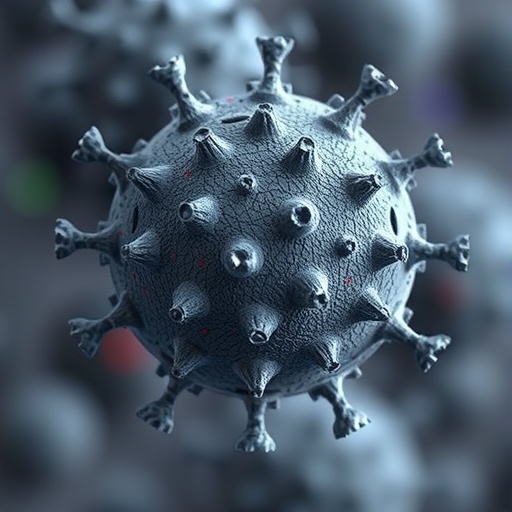The COVID-19 pandemic has profoundly impacted the global landscape of health care, with significant implications for diverse medical conditions. Among these, autism spectrum disorder (ASD) diagnosis and incidence have drawn considerable attention, particularly within the military health system. A recent study authored by Yeh et al. investigates these dynamics, shedding light on the intricacies of autism diagnosis during a time of unprecedented global disruption.
As the pandemic unfolded, various traditional health care pathways faced substantial barriers when responding to the increasing needs of individuals with ASD. The researchers tasked themselves with analyzing the sheer scope of these challenges, communicating with health care providers and military families to gather anecdotal and empirical evidence about the shifts they experienced. The transition to telehealth models served as a critical focus, presenting both opportunities and hurdles in delivering timely autism assessments and interventions.
In military contexts, where service members’ access to resources can vary widely, analyzing the change in autism diagnoses during the pandemic revealed a stark contrast with previous years. The team discovered that the pandemic brought delays in securing autism evaluations for children, primarily due to restricted access to in-person appointments and ongoing quarantines. Many families reported hesitancy in seeking care amid fears of COVID-19 exposure, which undoubtedly compounded their struggles in accessing necessary supports.
Furthermore, as schools transitioned to virtual platforms, parents suddenly became primary facilitators of their children’s learning and social interaction. This role shift was particularly significant for families of children with autism, who often benefit from structured environments and specialized support. The study highlighted how disrupted routines negatively impacted the developmental progress of many children on the spectrum, leading to increased behavioral challenges and heightened family stress.
Advocacy groups and military organizations engaged in promoting awareness of ASD faced challenges in disseminating information effectively during the pandemic. Through digital means, they endeavored to provide resources to families, but engagement remained sporadic. The researchers posited that the isolation felt by many families could directly correlate with the decline in diagnosis rates within the military health system, as individuals and families navigated unprecedented uncertainties.
The study also scrutinized trends in autism incidence, revealing potential underlying trends that existed prior to the pandemic. While some regions experienced a decrease in new diagnoses, others reported concerning spikes in autism cases post-lockdown. This inconsistency raised essential discussions about how access to care varies across regions and the long-term implications of missed diagnoses.
It’s vital to appreciate how these findings resonate beyond the military health system and into broader health care discussions. Public health infrastructure must adapt to ensure that essential services remain accessible, particularly amidst a crisis like COVID-19. The research drew comparisons and insights from previous health crises, emphasizing the need for proactive, flexible response strategies aimed at ensuring continuity of care for vulnerable populations.
Yeh et al.’s findings encourage a critical examination of the role of technology during the pandemic. Telehealth emerged as a saving grace for many families, enabling them to maintain some level of connection with health professionals. However, the study also raised questions about its limitations, particularly regarding the initial diagnostic assessments that are traditionally reliant on in-person interactions. As a result, the researchers urged stakeholders to investigate hybrid models of care that integrate digital tools with essential in-person consultations.
Maintaining the welfare of children with autism during the pandemic also called for innovative approaches to therapy and educational support. The research team observed that some families adapted by utilizing online resources, yet these solutions were often not universally effective. The disparities in internet access highlighted the digital divide, leaving certain populations at a disadvantage during critical learning and developmental phases.
As the global community emerges from the pandemic, the lessons learned from the military health system’s experience with autism diagnosis must inform future strategies. Stakeholders need to adopt a multifaceted approach that anticipates crises while fortifying pathways to care for individuals with ASD. Policies must aim to ensure that child developmental health remains a priority, even in the face of larger public health emergencies.
In conclusion, the study conducted by Yeh et al. emphasizes that understanding the impact of COVID-19 on autism diagnosis is more than an academic exercise; it has profound implications for clinical practice and public health policy. The ongoing pandemic has illuminated gaps in health care accessibility and necessitated innovative solutions for the persistent challenges faced by families of children with autism. As discussions unfold, the focus must remain on equipping health systems to be resilient in the face of future public health crises while ensuring that individuals with autism receive the timely support they require.
The narrative surrounding COVID-19 and autism diagnosis will continue to evolve, and as such, continuous research is key to informing best practices. The findings could transform how we comprehend the interplay between global events and individual health outcomes, potentially reshaping care paradigms in the long run.
Strong research, collaboration, and advocacy will inevitably lead to the development of a more responsive and inclusive health care system. The experience of navigating the complexities of autism diagnosis during the pandemic reminds us that while challenges abound, opportunities for growth and transformation exist. By applying the insights gleaned from this research, we can work collectively towards fostering a more supportive environment for individuals with autism and their families in the years to come.
Subject of Research: The Impact of COVID-19 on Autism Diagnosis and Incidence in the Military Health System
Article Title: The Impact of COVID-19 on Autism Diagnosis and Incidence in the Military Health System
Article References:
Yeh, K., Shakarji, J., Susi, A. et al. The Impact of COVID-19 on Autism Diagnosis and Incidence in the Military Health System. J Autism Dev Disord (2025). https://doi.org/10.1007/s10803-025-07108-z
Image Credits: AI Generated
DOI: 10.1007/s10803-025-07108-z
Keywords: COVID-19, Autism Diagnosis, Military Health System, Telehealth, Public Health, Developmental Disorders, Health Accessibility, Pandemic Impacts.




